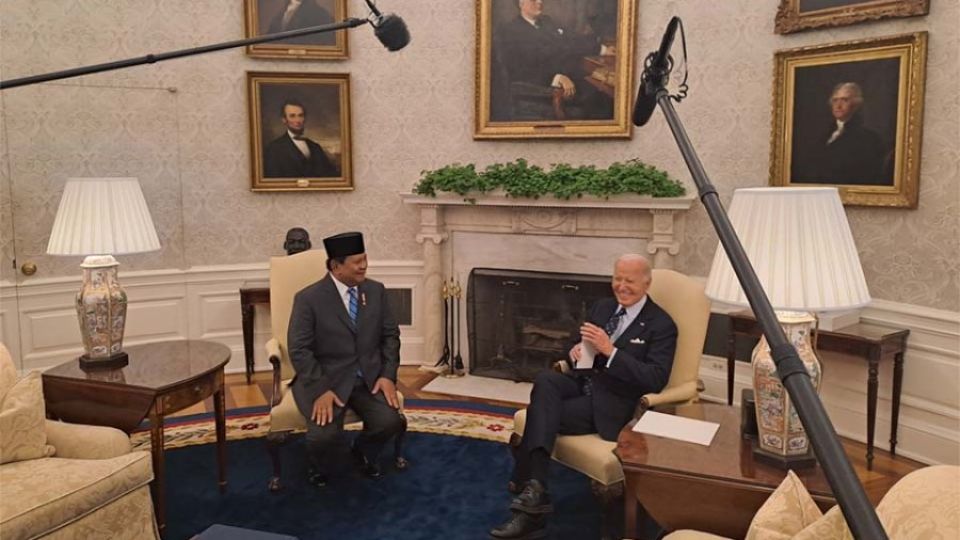November 18, 2024
JAKARTA – By visiting the United States immediately after China last week, President Prabowo Subianto has made it clear that Indonesia wants to be friends with both and that, despite their intensifying rivalry, it does not favor one over the other.
However, we cannot yet draw many conclusions about this balancing act to remain non-aligned since the leadership in the US will change in January following this month’s presidential election.
It’s good that Prabowo, while in the US, was able to talk to Donald Trump on the phone to congratulate him for winning the election. Judging by the video clip of their conversation that went viral on social media, the two have established a good rapport. For Prabowo to offer to fly to meet Trump personally wherever he was, however, seemed to be pushing it a little bit.
We should not take too seriously the joint statement that came out after Prabowo’s meeting with outgoing President Joe Biden in the White House. However, it’s still a useful document to balance the statement that came out in Beijing after Prabowo’s meeting with Chinese leader Xi Jin Ping.
US domestic and foreign policies will dramatically change when Trump takes over in January, so in regard to relations with the US under Trump, the first contact last week was important.
Getting the right balance is always a challenge for any Indonesian president, considering the clear mandate to uphold a non-alignment foreign policy, especially in midst of the currently volatile geopolitical landscape.
Prabowo’s predecessor Joko “Jokowi” Widodo may have shifted Indonesia to lean closer to Beijing, perhaps even a bit too close, to the point that we have become too economically dependent on China. Prabowo, who was Jokowi’s defense minister in the second and last term, helped tilt the balance a little by forging closer security ties with the US.
The challenge now for Prabowo as president is to strike the right balance that best serves our national economic, political and security interests.
Having impressed the CEOs of major US companies in a meeting in Washington DC last week, Prabowo must make sure that Indonesia’s bureaucracy and legal system are fully supportive of their investment. In the past, these factors, along with rampant corruption have prevented more investment from the West.
Prabowo’s private dinner with Trump’s son-in-law Jared Kushner was an important part of his economic diplomacy with the next US administration.
For this relationship to truly flourish, however, the US must stop treating Indonesia, and ASEAN for that matter, as a regional bulwark against China. In the same way, Indonesia should stop simply viewing the US through the lens of countering its dependency on China, or as a security guarantor in the region.
This is never a good basis to build a healthy, long and sustainable friendship. No one can ignore geopolitics, but it should not be the only, or even prime factor in building relations.
The US should see Indonesia as a rising middle power, the fourth most populous and hugely diverse nation, the third largest democracy, the largest democracy in the Muslim world and the 16th largest economy, on its way to becoming one of the top five largest in the next 20 years. Its leadership in ASEAN, and its potential to counter China, may follow afterward, if at all.
Indonesia should take the US as the world’s richest nation, most advanced in science and technology, the most powerful militarily, the third most populous and just as diverse. These should be good enough reasons to build cordial and mutually respecting relations, without bringing in the constantly changing geopolitical landscape.
Finally, Prabowo should fill the Indonesian ambassador post in Washington soon. He must select the best person for the job and give that person the time and space to work in forging closer ties. He should not follow Jokowi’s habit of sending the best person for the job only to recall them after a year or two because he needed them for more important matters back home.
Leaving the Washington post vacant too frequently, and for too long, sends the wrong message regarding the importance, or unimportance, of the US to Indonesia.


